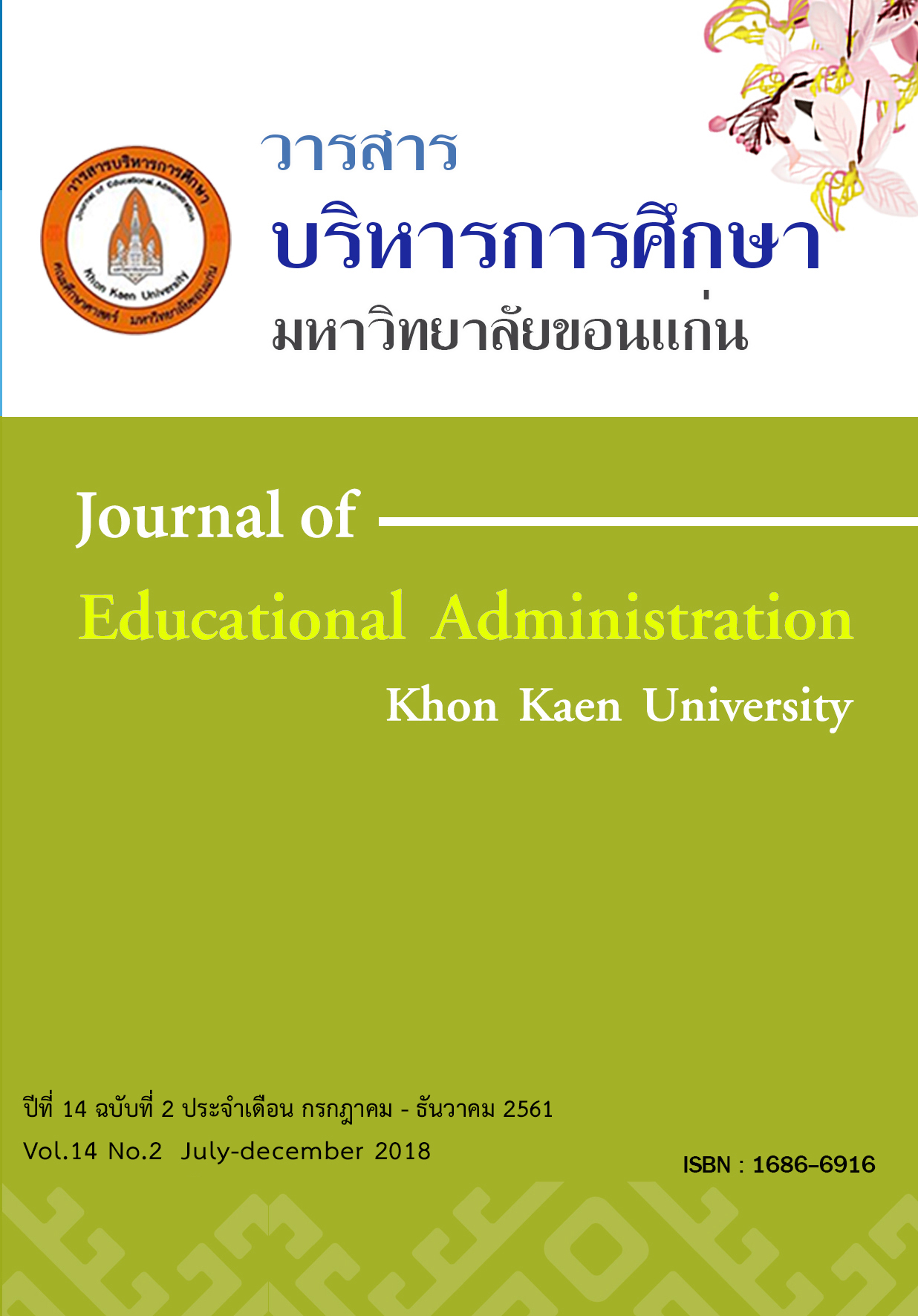THE DEVELOPMENT OF INFORMATION AND COMMUNICATION TECHNOLOGY LITERACY PROGRAM FOR PRIMARY SCHOOL ADMINNISTRATORS
Main Article Content
Abstract
This research and development program on information and communication technology (ICT) literacy for administrators of primary schools aimed at: (1) studying the elements of ICT literacy of primary school administrators, (2) exploring the current and desired conditions of ICT literacy of primary school administrators, (3) developing the program for ICT literacy development for primary school administrators, and (4) examining the result of using the ICT Literacy Program for primary school administrators. Methodology of research and development (R & D) was employed and divided into 4 phases throughout 7 processes. Phase 1 included studying the concepts, theories, and research that related to the elements of ICT literacy of primary school administrators and the principles they used for managing information technology. Phase 2 focused on exploring the current and desired conditions of ICT literacy of primary school administrators and their needs towards ICT literacy. Phase 3 was conducted to develop the ICT literacy of primary school administrators. Phase 4 involved the implementation and evaluation of this ICT Literacy Program. Statistics used for analyzing quantitative data were frequency discrimination, percentage, mean, standard deviation, Priority Needs Index (PNI), before interpreting the mean score. The research findings were as follows:
- The 7 synthesized elements of ICT literacy included: (1) definition, (2) creation, (3) Access, (4) management, (5) communication, (6) integration, and (7) evaluation. These were integrated with the 5 synthesized elements of ICT for school administrators which included: (1) policy of promoting the management, (2) infrastructure of resource service, (3) teacher and educational staff, (4) instruction/ curriculum of learning process, and (5) collaboration among public sectors, private sectors, and communities.
- Current condition of ICT literacy of primary school administrators indicated the high level. The first 3 desired conditions for the needs on developing the new skills and knowledge of ICT literacy were respectively ranked as follows: (1) integration, (2) evaluation, and (3) management. They also required to develop all 7 elements of ICT literacy.
- The ICT Literacy Program consisted of 4 parts. Part 1 was the introduction. Part 2 contained the detail of ICT literacy for primary school administrators, which consisted of 7 modules. Part 3 was the use of ICT Literacy Program of primary school administrators. Part 4 was the evaluation of ICT Literacy Program for primary school administrators and the conditions of success of implementing this program.
- The results of using and evaluating this program indicated that the reaction and attitude of primary school administrators towards the ICT literacy after development was higher than before development. They involved their ICT literacy to their works at schools. The result of self-assessment of program participants and the assessment made by their subordinates indicated the highest level.

